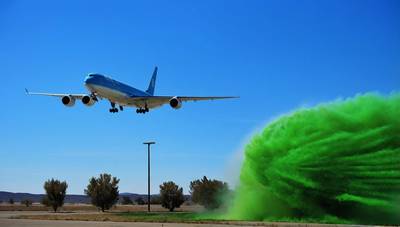Sources say that the US will object to the green jet fuel recommendation made by UN Aviation Council.
The global aviation sector aims to achieve net zero emissions by the year 2050
One option for a sustainable aviation fuel is ethanol
Brazil's ethanol producers are concerned about US interference with UN SAF rules
Allison Lampert & Oliver Griffin
Two sources with knowledge of the issue said that the U.S. would object to the recommendation of the UN Aviation Agency Council, which Washington believes unfairly benefits Brazilian corn farmers to the detriment of U.S. producers when it comes to the development of green jet-fuel.
One source said that the discussion could be resolved through a compromise. Brazil's corn-ethanol producers warned, however, that the disagreement may undermine global confidence in the certification of sustainable aviation gasolines.
In order to achieve net zero emissions in 2050, global carriers are being forced to switch from kerosene to cleaner, but more expensive alternatives, such as cooking oil or municipal waste.
The International Air Transport Association estimates that the cost of greening the aviation industry will be $4.7 trillion over the long term.
Global SAF accounts for less that 1% of the industry's total jet-fuel usage. The European airport quotas, tax incentives, and global targets should help fuels with lower emissions find a growing market.
Farmers and ethanol producers from the Midwest are working to reduce emissions in order to produce and market corn ethanol in new markets, such as green jet fuel. Some U.S. producers of ethanol have suggested carbon capture technology.
The Iowa Corn Growers Association supports carbon capture projects in order to reduce emissions. They have stated that Brazil has a lower score of carbon for corn ethanol compared to the U.S. This would give Brazil an advantage when it comes meeting airline demand.
In March, the U.S. State Department objected to a technical panel of the International Civil Aviation Organization's (ICAO), which had proposed criteria for SAF. The U.S. claimed that the recommendation unfairly favored Brazil over other countries, as it would give a lower score for carbon to multicropping or farming, which is a practice common in South America.
The 36-member ICAO council will review the recommendation before its triennial meeting this fall. ICAO can't impose rules to member states. However, countries that accept the standards and guidelines of the agency usually follow them.
The U.S. State Department declined to comment. Brazil's Agriculture Ministry acknowledged receiving questions but did not further respond. ICAO, based in Montreal, was not immediately available to comment.
UNEM, the Brazilian producers' association, said that recommendations made by ICAO's Committee on Aviation Environmental Protection should not be politicized.
Bruno Alves is the director of UNEM's institutional relations and sustainability. He said that any attempt to interfere with the process would undermine the confidence in the system for the certification of sustainable aviation fuels.
"UNEM considers it essential to respect and preserve this transparent and technical process. It would be very serious to try and delegitimize the results or politicize them. Reporting by Allison Lampert, Sao Paulo and Oliver Griffin; editing by David Gregorio
(source: Reuters)



